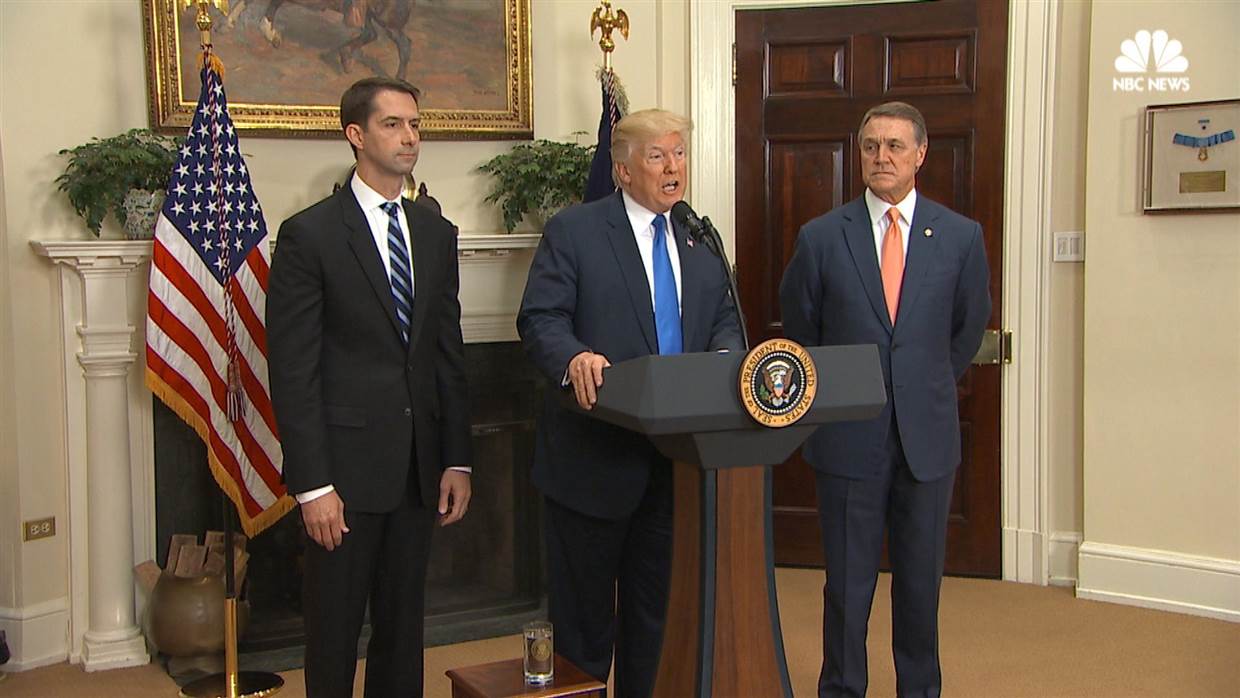A newly-introduced bill that would drastically change the country’s system for people who want to legally immigrate to the U.S. was quickly criticized as an economy killer, racially-motivated and an attack on U.S. values, but also was hailed by supporters.
“This is not a conservative bill,” said Alfonso Aguilar, executive director of the Latino Partnership for Conservative Principles. “I think it’s horrible legislation. It will take us back to the years when preference was given to people from northern Europe.”
He said the bill is discriminatory because it shows preference for people who speak English and are high skilled, meaning the country will discriminate against people who are poor and people from the Southern Hemisphere. “I’m not sure it’s racist, but it clearly is trying to exclude certain types of people.”
Mario H. Lopez, president of the Hispanic Leadership Fund, which supports conservative principles such as limited government, blasted the bill, calling it “wrong on substance” He said it will fail at its stated goals of raising wages and creating “skills-based” immigration.
The 1965 Immigration Act replaced the country’s immigration quota system that was based on national origin with a system meant to reunify families and attract skilled labor.
It also would change the employment-based visa system to a system that culls who is eligible based on a set of criteria, such as ability to speak English and whether they have pending offers of high-paying jobs.
It would also do away with the diversity visa lottery, which opens the door for immigrants from countries that send few people to the U.S., reduce refugee admissions and make other changes.
Lizet Ocampo, political director of People For the American Way, went further saying the legislation has nothing to do with helping the economy “and everything to do with playing up the Trump administration’s nativist agenda” to boost support from his base.
“President Trump continues to demonstrate that he is willing to abandon our country’s values in order to push his own extreme agenda and score a few political points,” Ocampo said.
Tom Perez, chairman of the Democratic Party, said the proposal would “stifle” American economic growth and “limit our nation’s potential.” “Democrats believe diversity is our biggest strength, and we will continue to stand with the immigrant communities that enrich our country every day,” he said.
Democratic Sen. Bob Menendez, a member of the Senate Foreign Relations Committee, said the bill introduced by Rep. Tom Cotton, R-Ark. and David Perdue, R-Ga., showed Republicans didn’t learn from the mistake of the health care bill repeal with the introduction of the bill Wednesday.
“Unfortunately, today’s proposal is a sad reminder that the Republican agenda on immigration is the product of extremists who prey on immigrants while the majority of Americans … continue to ask for practical, common sense immigration policies that put people and families first without harming our economy in the name of nativism,” Menendez said in a statement.
Trump backed the bill as a tool to help protect American jobs and supporters.
In the White House press briefing, senior policy adviser Stephen Miller argued the bill would change a system that he said displaces U.S. workers by bringing in low skilled workers and that has particularly been unfair to Latino, black and immigrant workers.
“By prioritizing higher paid workers, you basically end the practice more or less of seeking out immigrant workers to come in at lower pay,” Miller said.
Miller projected that there would be a groundswell of support for the legislation the more it is discussed. Miller previously worked for Attorney General Jeff Sessions when Sessions represented Alabama in the U.S. Senate. Sessions had tried to pass legislation overhauling the family-based immigration system as a senator.
Asked in the press briefing if he was trying to engineer the racial and ethnic flow of immigrants to the county, Miller said the notion that the proposal is racist “is so wrong and so insulting.”
Some members of Congress pushed back on the bill, including Sen. Lindsey Graham, R-S.C., who tweeted it would hurt his state’s economy. The White House, however, sent out a collection of quotes from supporters in the administration including Labor Secretary Alex Acosta. He said Trump “understands stopping the abuse” of the country’s immigration and visa system is important for U.S. economic success. The bill would roll back regulations “that put American workers and businesses at a disadvantage.”
A number of studies have concluded that immigration has a positive economic impact on the U.S. economy. Latino immigration has been seen as important for sustaining the American workforce because the white U.S. population is much older and many white Americans are hitting or reaching retirement age.
There are communities and workers that can show they’ve been negatively impacted by immigration. Lower skilled workers often are most affected by immigration, studies have shown. But a number of immigrants have gone on to head or start major businesses that in turn employ other Americans.
Some communities feel the impact of immigration on their schools and hospitals, but immigrants also contribute to tax bases, have been credited with restoring dying towns and cities and helping contribute to Social Security, which is feeling the strain of the aging Baby Boom generation.
“Immigration is a national imperative for the United States, fueling economic growth and supporting our nation’s retirees. The RAISE Act’s goal of reducing legal immigration is a threat to the U.S. economy and would place additional strains on the Social Security system by reducing the size of the labor force,” Teresa Cardinal Brown, an immigration expert at the Bipartisan Policy Center said in a statement.
Source:NBC
















